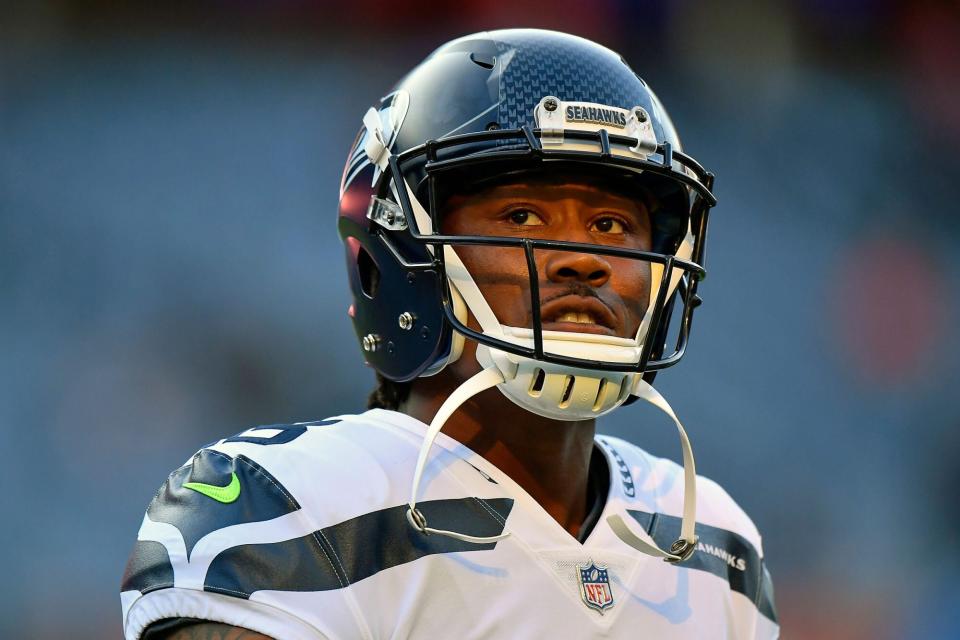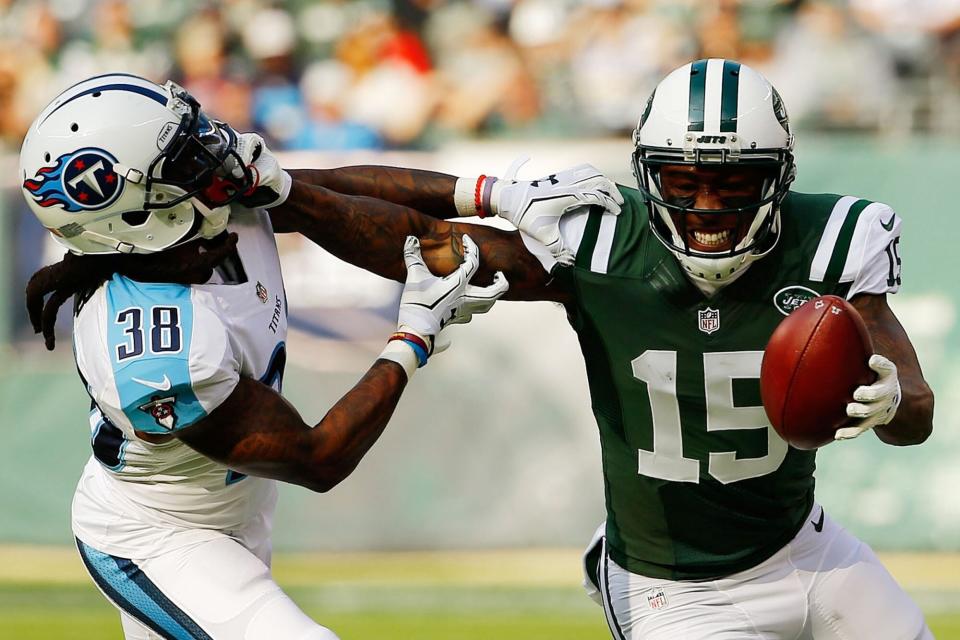Former NFL Star Brandon Marshall Battling Stigma of Mental Illness: 'We Still Have Work to Do'

- Oops!Something went wrong.Please try again later.
Steven Ferdman/Getty Brandon Marshall
Last year, Dallas Cowboys quarterback Dak Prescott publicly revealed he had been experiencing anxiety and depression following the suicide of his brother. In the days that followed, famed Fox Sports commentator Skip Bayless said that the admission was a sign of weakness and claimed it would affect his teammates' ability to "believe" in Prescott as a leader.
Bayliss later apologized but that mentality, former football star Brandon Marshall tells PEOPLE, is a remnant of past NFL culture — something he has worked so hard to change.
"It's different now," Marshall, 36, says, nothing though, "I think we still have work to do."
The Fox Sports' First Things First analyst played 13 seasons in the NFL for teams including the Denver Broncos and Chicago Bears before ending his career in 2018 with the New Orleans Saints.
Despite his on-the-field success, Marshall admits he was prone to volatile behavior at the beginning of his NFL career.
"The dumb mistakes I made in college," he reflects, "the stupid things I've said in the media. All of that led to me sitting down with my team, my agent and my assistant at the time, and saying 'Yes. It's time to get help and not just talk therapy, but let's figure out if there's a program out there.' "

Quinn Harris/Getty Brandon Marshall
Marshall entered an outpatient program at McLean Hospital in Massachusetts for three months in 2011, working through various therapy forms, and learning, he says, "This is not how the world operates. This is not how you're supposed to communicate. This is not how you're supposed to cope."
He was ultimately diagnosed with borderline personality disorder (BPD). According to McLean, BPD "is a complex mental illness marked by unstable moods, behaviors, and relationships."
Will you accept this rose? Sign up for PEOPLE's free weekly Bachelor Nation newsletter to get the latest news on The Bachelor, The Bachelorette and everything in between!
"It was the most interesting time of my life spending three months there," Marshall reflects now, 10 years later. "And I'm forever grateful because it pushed me to think beyond myself. [It was] the first time I realized that football was my platform and not my purpose. And my wife [Michi Marshall] and I were able to create a foundation that inspired so many people. And it also saved lives."
That foundation is Project 375, which is dedicated to the education, support, and treatment of mental health.
"I think a lot of people suffer in silence, whether they know they're hurting and they just sit there with their thoughts," says Marshall. "And I think there's another group that suffers in silence where they just don't know any better because they're a product of their environment."
Marshall said the impact of the public revelation of his diagnosis was almost immediate. Following his first press conference after leaving McLean, he said a teammate pulled him aside and whispered, " 'Brandon, thank you for shedding light on this. I was diagnosed with this and I've never talked about it.' "
Never miss a story — sign up for PEOPLE's free daily newsletter to stay up-to-date on the best of what PEOPLE has to offer, from juicy celebrity news to compelling human interest stories.

Al Bello/Getty Brandon Marshall
"I thought that was a powerful moment," he says. "But I also was fueled by that, because here I am in front of the world talking about what I've dealt with and my diagnosis. And I still have a guy that felt like they had to pull me to the side and whisper to me so nobody heard what he's dealing with. So that's where we were in 2011, 2012. Now Dak Prescott is talking about it openly."
He thinks the stigma that revealing mental health struggles denotes weakness extends beyond professional athletes, too, though. Explains Marshall, "We're telling boys who are going to become men not to connect with emotions, not to show the pain. It's not okay. So 100% there's a stigma attached to men and mental health, but that is being broken as well."
Marshall is now focused on pushing all-around wellness through his health facility, House of Athlete in Weston, Florida. The center has a five-pillar approach, covering not only physical wellness like training and recovery but also mental wellness.
And House of Athlete's practices are extending to healthcare workers around the country through the Fuel the Frontlines program, launched by Marshall's Project 375.
Fuel the Frontlines has partnered with brands including Theragun and Recovery Pump to create recovery rooms in 100 hospitals around the country where nurses and doctors can refuel and reset. Over 20,000 healthcare workers will be impacted by the program, which includes other star athlete ambassadors like Ali Krieger and Ashlyn Harris.
Says Marshall, "We're giving them the modalities and tools they need to be able to recover for the next patient. ... They're standing on their feet for 14, 16 hours just trying to save our lives."
